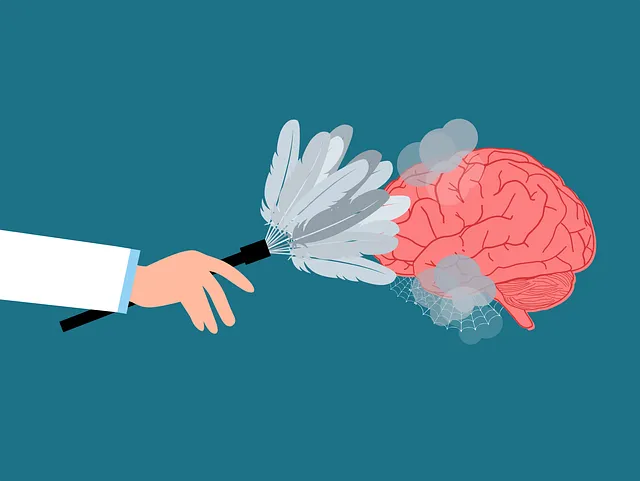Risk assessment is paramount at the Kaiser Permanente mental health facility in Centennial for safe, effective care. Regular assessments identify risks like staff burnout, leading to tailored programs and initiatives. As a premier provider serving diverse communities, Centennial offers specialized therapy programs and advanced infrastructure for personalized treatments focusing on long-term well-being. Mental health professionals face unique pressures including high emotional demands and ethical guidelines, but strategies like mindfulness and cultural sensitivity mitigate these risks. The facility's multi-faceted risk management includes coping skills development, mental wellness journaling, and emotional intelligence training to enhance self-awareness, interactions, and overall well-being for both clients and staff.
“In the realm of mental healthcare, risk assessment is a vital tool for ensuring patient safety and provider well-being. This article explores comprehensive risk management strategies specifically tailored for professionals at the Kaiser Permanente Centennial Facility, a bustling hub for mental health care. We delve into the unique challenges faced by its staff, from high-risk cases to potential workplace hazards. By understanding these risks, we’ll uncover effective methods to mitigate them, fostering a secure and supportive environment for both patients and practitioners within this leading healthcare facility.”
- Understanding Risk Assessment in Mental Health Care
- The Role of the Kaiser Permanente Centennial Facility
- Key Risks and Challenges Faced by Mental Health Professionals
- Strategies for Effective Risk Management and Mitigation
Understanding Risk Assessment in Mental Health Care

Risk assessment is a cornerstone of safe and effective mental health care, particularly within facilities like the Kaiser Permanente Centennial mental health facility. It involves meticulously evaluating and understanding potential hazards and risks that patients, staff, and the organization itself may face. This proactive approach allows for the implementation of preventative measures and interventions to mitigate these risks, fostering a safer environment for everyone involved.
At the Kaiser Permanente Centennial mental health facility, risk assessment plays a crucial role in maintaining high standards of care. By regularly assessing factors such as patient vulnerability, staff workload, and environmental hazards, the facility can identify potential triggers for issues like burnout among professionals. This, in turn, enables the organization to offer tailored Stress Management Workshops and initiatives aimed at promoting Burnout Prevention, ensuring that both patients and mental health workers receive the support they need to thrive in a challenging yet rewarding field.
The Role of the Kaiser Permanente Centennial Facility

The Kaiser Permanente Centennial Facility plays a pivotal role in mental health care, particularly for those seeking support within the network. This state-of-the-art center is dedicated to providing comprehensive services tailored to diverse needs, reflecting the growing importance of mental well-being in modern society. By offering specialized programs and resources, it acts as a hub for resilience building, anxiety relief, and mood management.
The facility’s strategic location and advanced infrastructure enable efficient delivery of care, ensuring accessibility for individuals across various communities. Professionals here employ innovative approaches to treatment, combining traditional therapies with contemporary techniques to offer personalized solutions. This holistic approach acknowledges the complex nature of mental health issues, focusing not just on symptom reduction but also on fostering long-term coping strategies and enhancing overall well-being.
Key Risks and Challenges Faced by Mental Health Professionals

Mental health professionals at Kaiser Permanente mental health facility Centennial face a unique set of risks and challenges. One of the primary concerns is the high emotional demand of their work, leading to potential burnout and stress-related issues. Constant exposure to traumatic stories and intense emotions from clients can take a toll on their own mental well-being. Additionally, maintaining confidentiality while adhering to strict ethical guidelines presents a complex challenge, especially in cases of imminent danger to the client or others.
Another significant risk lies in the lack of self-care practices among professionals. Overwork and the constant need to be ‘on’ can result in exhausted practitioners, impacting their ability to provide effective care. Furthermore, the evolving nature of mental health demands continuous learning and adaptation, emphasizing the need for ongoing professional development. Incorporating practices like mindfulness meditation and emotional intelligence training, as well as cultivating cultural sensitivity in mental healthcare practice, can mitigate these risks and enhance resilience among Kaiser Permanente’s mental health professionals.
Strategies for Effective Risk Management and Mitigation

At a Kaiser Permanente mental health facility like Centennial, risk management is paramount for maintaining a safe and supportive environment. Effective strategies involve a multifaceted approach. One key component is Coping Skills Development. Equipping clients with tools to navigate stress, anxiety, and difficult emotions enhances their resilience and reduces potential risks. Regular Mental Wellness Journaling Exercises guided by professionals can help individuals process thoughts and feelings, fostering self-awareness and emotional regulation.
Moreover, cultivating Emotional Intelligence plays a crucial role in risk mitigation. Mental health professionals can model and teach techniques to recognize and manage emotions, thereby promoting healthier interactions and reducing the likelihood of adverse events. By integrating these practices into daily operations, Kaiser Permanente facilities ensure a proactive approach to risk assessment and management, prioritizing the well-being of both clients and staff.
Mental health professionals play a vital role in helping individuals navigate complex emotional landscapes, making risk assessment an indispensable tool. As highlighted by the practices at the Kaiser Permanente Centennial Facility, proactive risk management strategies are essential to ensure patient safety and well-being. By recognizing potential hazards, implementing effective mitigation measures, and fostering a culture of continuous improvement, mental health professionals can enhance their practice environments. The Kaiser Permanente model demonstrates that through comprehensive risk assessment and strategic planning, mental health facilities like the Centennial location can foster healing and support individuals facing diverse challenges.






